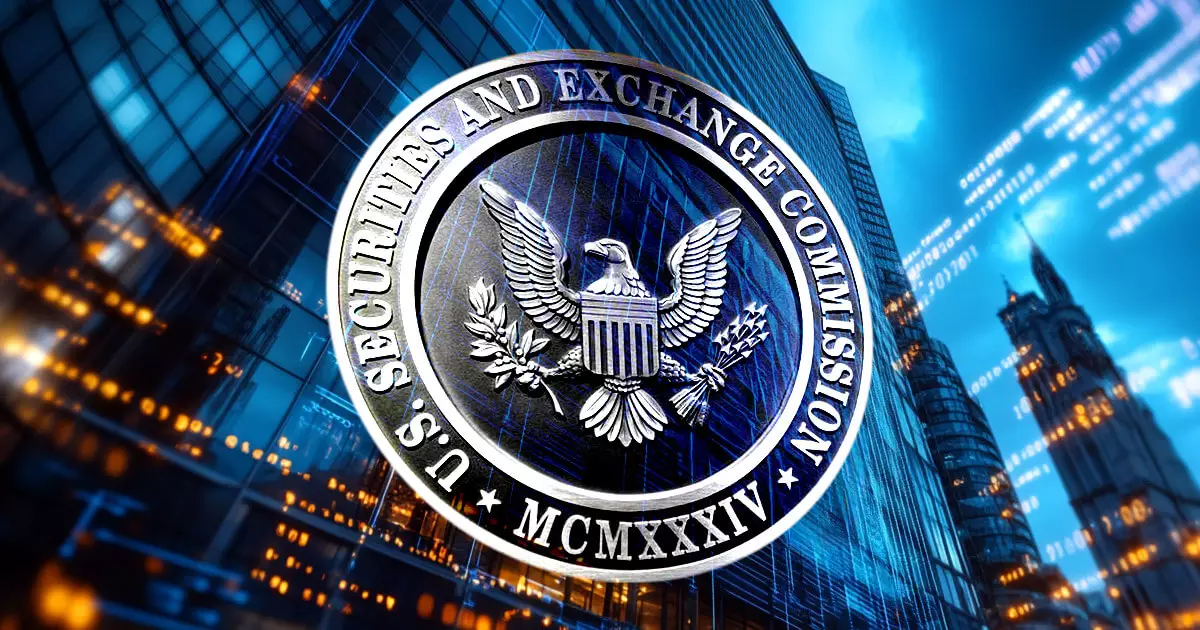The landscape of digital asset regulation is evolving rapidly, and the U.S. Securities and Exchange Commission (SEC) has recognized the need for a strategic overhaul in its approach to this complex sector. The recent establishment of the Cyber and Emerging Technologies Unit (CETU) marks a significant shift from its previous focus on Crypto Assets and Cyber Unit. This article delves into the implications of this transformation and outlines the CETU’s mission to navigate the intersections of technology, finance, and regulatory compliance.
Announced on February 20, the CETU underscores the SEC’s commitment to adapting its regulatory framework in response to the growing challenges posed by emerging technologies. Formerly the domain of the Crypto Assets and Cyber Unit, the CETU expands its focus to encompass a broader range of technology-related issues, including artificial intelligence, blockchain fraud, and social media manipulation. By broadening its scope, the SEC aims to address the multifaceted nature of today’s financial crimes, which often leverage technology as a means to perpetuate fraud.
Leading this initiative is Laura D’Allaird, previously the deputy director of the SEC’s Division of Enforcement. Her appointment as the inaugural chief of CETU signals a strategic alignment of expertise within the organization to tackle sophisticated threats in the financial sector. The unit, composed of 30 attorneys and fraud specialists, represents a significant consolidation of knowledge in fintech, cybersecurity, and digital asset markets. With regional offices dispersed across the U.S., the CETU is poised to enhance the SEC’s enforcement capabilities, ensuring that it can effectively respond to misconduct in these rapidly evolving domains.
A notable aspect of the CETU’s formation is its alignment with the broader goals articulated by acting SEC Chair Mark Uyeda. He emphasized that the unit is designed not just to protect investors but also to facilitate capital formation and innovation within the market. This duality reflects an understanding that stringent regulations can stifle innovation if not implemented thoughtfully. By coordinating efforts with Commissioner Hester Peirce’s Crypto Task Force, the CETU seeks to judiciously allocate enforcement resources while simultaneously nurturing an environment where new technologies can thrive.
Uyeda’s comments signal a shift from a punitive regulatory atmosphere toward a more balanced approach, one that attempts to cultivate growth in the digital asset space while safeguarding market integrity. This aligns with national interests in positioning the U.S. as a leader in blockchain innovation and enhancing competitiveness in the global financial market.
Focusing on Key Areas of Concern
The CETU’s priorities are well-defined, targeting specific areas that have emerged as significant risks in the digital asset realm. These include AI-driven fraud schemes, the manipulation of information through dark web activities and social media, cybersecurity breaches, and compliance failures surrounding brokerage accounts and cryptocurrency transactions. By delineating these areas of focus, the SEC aims to adopt a proactive stance against threats that could undermine public confidence in emerging technologies.
Importantly, the CETU’s focus on “Fraud involving blockchain technology and crypto assets” rather than a blanket approach to securities fraud suggests a nuanced regulatory philosophy. This distinction indicates a recognition of the unique attributes of digital assets while avoiding the classification of all crypto projects as unregistered securities. This evolution in regulatory thinking opens the door for innovation while still addressing the legitimate concerns surrounding potential fraudulent activities.
Balancing Regulatory Leadership and Market Growth
The CETU reflects a broader ambition to integrate lessons learned from former SEC leadership while positioning the Commission to tackle new and evolving challenges. The contrast to former Chair Gary Gensler’s more aggressive litigation approach highlights a gradual shift towards a model that encourages innovation without compromising security. This structural change could potentially foster a healthier relationship between regulators and the burgeoning field of digital assets.
With the backdrop of policy shifts from the Trump administration aimed at promoting blockchain innovation and countering foreign digital currency initiatives, the CETU’s formation is a step toward creating a conducive regulatory environment. As the SEC navigates the complexities of technology-driven financial systems, it is crucial that they strike the right balance—encouraging innovation while ensuring that there are robust safeguards to protect investors and market integrity.
The SEC’s establishment of the Cyber and Emerging Technologies Unit represents an important evolution in regulatory strategy, one that acknowledges the intricate relationship between technology and finance. By prioritizing collaboration, clarity, and innovation, the SEC hopes to address the multifaceted risks inherent in the digital landscape without hindering the fundamental growth that new technologies can bring.















